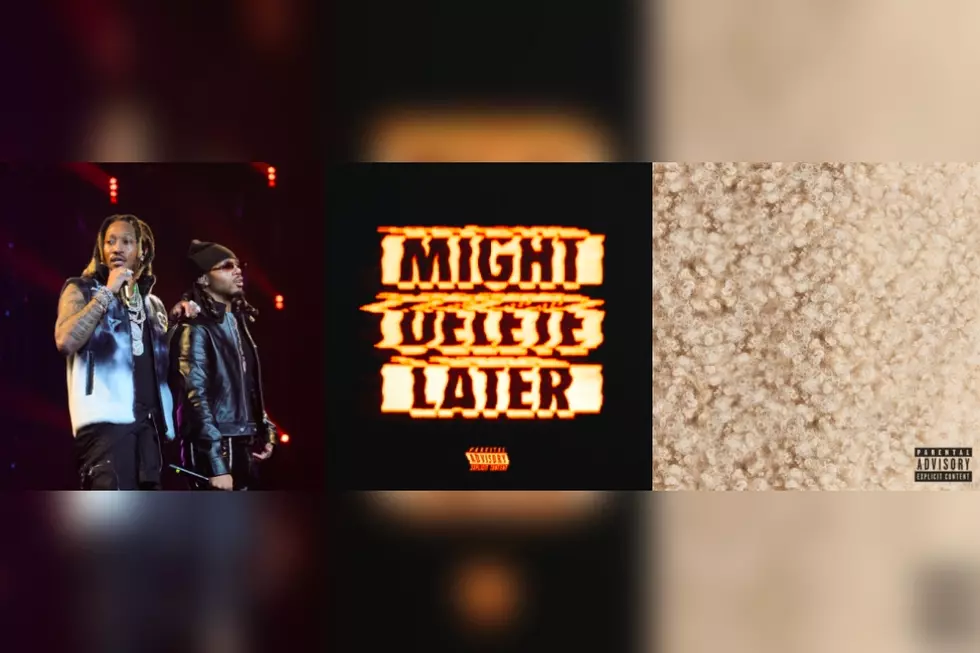
FEATURE: Mos Def, Quiet As Kept
Readying the fourth album of his enigmatic career, reclusive rapper-cum-actor Mos Def
has things to say that people need to hear. But you gotta listen close.
Mos Def sounds like a grandpa when he speaks. He mutters. He grumbles. Tinged with skepticism, his voice is that of an old man who’s seen it all—and rarely believes what he sees. He goes off on tangents where you don’t really know what he’s talking about but you can’t help listening. He knows what he’s talking about. And it’s that conviction that makes it seem like he’s right.
Presently he’s seated at a back table in the dusky basement of La Esquina restaurant in Soho, an area where he’s often spotted skateboarding. Malik Yoba sits two tables away, dining with a female companion. A cliché setting for a magazine story—a chic, celebrity-stocked restaurant—but almost nothing Mos Def does is cliché, especially when it comes to his relationship with the media. For a rap artist, he doesn’t do many interviews with rap magazines (his last appearance in the one you’re holding in your hands was more than 10 years ago, despite numerous requests from the editors). “Reports of my death have been greatly exaggerated,” he jokes with a sheepish smile. “I tell my story in my music, but every part of me is not for sale. That’s part of the reason why I play the press so…” He pauses. “Carefully.”
So this is the part of his job that, frankly, annoys him. “I keep getting rudely reminded that I’m famous,” he says. “Maybe I keep denying it.” Nevertheless, he’s polite and cooperative while posing for a photo shoot in 40-degree weather. “I’m talking now because it’s the time to,” he says. His fourth solo album, The Ecstatic, is due in June. “There’s nothing wrong with taking a pretty picture or getting your face out there. But for a while in hip-hop, it started to feel like that was part of the creative process. And if you wasn’t doing that, that there was some part of the creative process that you was just neglecting that was vital, and, uhh, I just disagree with that.”
Mos Def is the type of lyricist rap purists idolize. His 1998 collaboration with Talib Kweli, Black Star, released through the venerable indie Rawkus Records, stands as a straight tutorial on how to spit, while his solo debut, Black on Both Sides (1999), has achieved cult-classic status. He rhymes like he’s studied Roget’s Thesaurus, and though he’s never cracked the million mark at retail (Black on Both Sides sold 854,000), his fan base is wide and diverse. He walks around alone, wearing jeans with red suspenders, a small black leather jacket, black-and-white Vans from Japan, a backpack and sunglasses. There’s a Battle of Algiers VHS and a copy of the Hermann Hesse novel Siddhartha in the backpack.
For all his acclaim, though, Mos’s last truly great album was his first, and that was a decade ago. Its follow-up, an experimental cross-genre effort called The New Danger (2004), found him harmonizing more than some folks cared for, and True Magic (2006) disappointed pretty much everybody. Initially titled Unseen and Believed, the disc (and that’s all it was; there wasn’t even an album cover) arrived with no promotion, the fulfillment of a two-album contract with Geffen. “I was, on top of eager to get it out, also eager to bring that relationship to a close so I could get into another type of free zone,” explains Mos. “The songs are good, but the presentation was lacking.”
While he hates the term “conscious rapper” (“Conscious as opposed to what,” he asks, “asleep rap?”), he’s earned the tag for rhyming with a social awareness rare in today’s game. With a sitting Black president, a costly war in Iraq and a recession spurred by a financial crisis, you’d think there’d be hundreds of voices like Mos Def’s in hip-hop right now. Instead, many of his contemporaries seem stuck on rapping about Lambos and Maybachs. “They don’t care about the people,” he says of his peers. “I don’t think they care that much about themselves. Nobody has to be a holy roller. But you don’t have to put poison in the food ’cause it’s cost-efficient or ’cause it’s tasty. This is gonna hurt people. And these are critical times for people.”
Born Dante Smith on December 11, 1973, he grew up in Brooklyn’s Roosevelt Houses, raised in line with the Seventh Day Adventist values of his mother, Sheron, and grandmother. His dozen brothers and sisters, all of whom he was close to, were sprinkled throughout the borough. He first identified with hip-hop at nine, after hearing Run-DMC’s “It’s Like That,” and describes his entrance into rhyming as an osmotic process.
Talib Kweli remembers meeting Mos amid the MC ciphers in a late-’80s Washington Square Park. “He would always have a fedora on, where the rest of us had Timberlands and baggie jeans,” says Kweli. “So he always kinda stood out. And he was always coming from an acting gig at that time… He would just sort of stop in the park, and I thought he was just really, really, really talented.”
After attending Phillippa Schuyler I.S. 383, a gifted-and-talented middle school in Bushwick, Mos dropped out of high school at 16 to pursue acting. Around that time, he made his screen debut in the made-for-TV drama God Bless the Child, and later starred in The Cosby Mysteries. He converted to Islam at age 19 and, two years later, in 1994, formed a rap group called Urban Thermo Dynamics with his younger brother DCQ and sister Ces, releasing two singles. After working with De La Soul and Da Bush Babees, Mos dropped his first solo single, “Universal Magnetic,” independently in 1996 and signed to Rawkus Records three years later.
Having appeared in 16 movies over the past 10 years—from action (The Italian Job, 16 Blocks), to drama (The Woodsman, Monster’s Ball), to comedy (The Hitchhiker’s Guide to the Galaxy, Be Kind Rewind)—not to mention a stint hosting Russell Simmons’s Def Poetry Jam on HBO, Mos has earned major acclaim for his acting chops. This while dropping only two albums, giving his fans the distinct impression that he favors acting over rapping. (On the way out of La Esquina, Malik Yoba tells Mos it’s “’bout time” he released an album.) Mos is a little defensive on the subject. “I’m always writing… I do a lotta shows. I’m active,” he says. “People’s expectations, it’s hard to absorb them, ’cause once you do, you run the risk of never being able to meet them. What people want you to do may not necessarily be what you need to be doing.”-CLOVER HOPE
For more of the Quiet As Kept article, make sure to pick up XXL's July issue on newsstands now.
More From XXL









